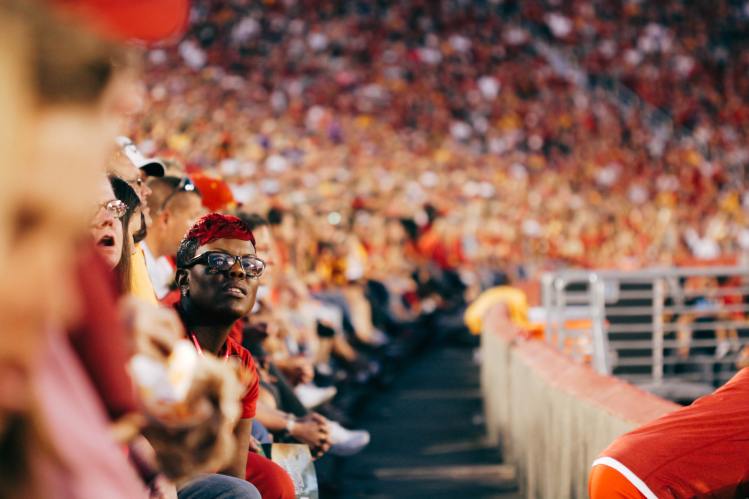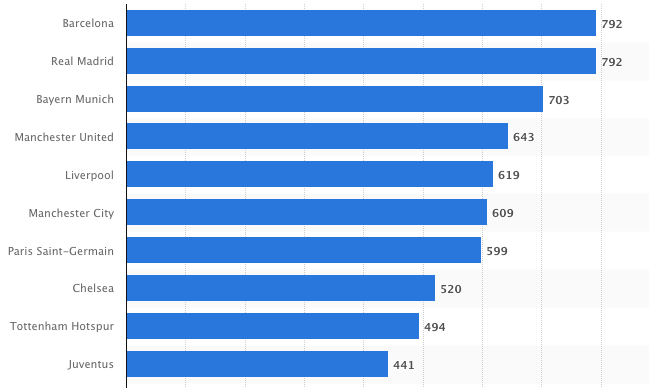To say that the fans are the center of the sport and its business seems like a no-brainer. In the XXI century, and oddly enough, many countries, sports, or markets seem to have forgotten. They try to build the commercialization of the sport by ignoring the fans, who are the other essence of the competition. The incredible thing is that many survive, ignoring this maximum sentence. They must fight hard to produce profits in sports marketing while ignoring the fans. The question will always be, why do they ignore them? If the fans are not only the purchasing power but the heart and the emotion for their sports idols. They have a passion they cannot stop and that marketing must take advantage of—those who make it win.

By: Otto Gutierrez (4ottog@gmail.com)
A few weeks ago, the arrival of the new owners of Chelsea FC from London put the issue of fans and their importance in generating profits back on the table for sports businesses. The millionaire owner sold it and made it very profitable. Also, the buyer Todd Boehly paid the sum of 2.5 Billion pounds and promised an investment of another 1.7 Billion pounds, keeping one of the most beloved teams hated by England. By saying this, we are talking about fans for and against the team. We talk about emotions—the desire to win and stay on top. These are barely apparent objectives that many football teams do not have today.
Perhaps what makes you think the most after buying Chelsea in the past and the philosophy of the new owner. Boehly is a sports entrepreneur who owns the Dodgers professional baseball team in the United States and the Los Angeles Lakers’ NBA squad. In short, the new owner needed 3,000 million dollars to close the operation. Here is when you have to see Boehly’s philosophy. In his teams, he preached that the fans are the center of his business. Two things must be done towards them. The first to make the maximum effort every day to improve the fans’ experience in front of their team. In the second, see what was not included in the first and do it. Everything so that the fans are in the center, and the business begins. With these two ideas in mind, it is explained how someone invests 3 billion dollars in a team that seemed to have done everything with few possibilities for growth. Boehly has made it clear that by applying his philosophy, there is plenty of room to grow, recoup his investment and make a profit.
Let’s take a quick look at the world’s top ten highest-earning soccer teams in 2021, according to The Deloitte Intelligence Tool. The London Blues are ranked eighth, above only Tottenham and Juventus. (Millions of dollars)

We talk about estimated and average percentages because they vary according to teams and countries. Let’s now see how in general, the most influential teams in the world generate their income. Then have the tools to see if these sources of income are taken advantage of or ignored in our local markets.
TV and Broadcasting: They are 30% of the income. Include the principal TV rights and other minor ones. Each team uses its media and channels to offer what is not included in the central agreement.
Sponsorship, Advertising, and Commercial: it reaches 13%. The shirt’s main sponsor is usually the club’s most significant business. The naming rights are valuable, as are the brands of other products accompanying the team.
Prize Money: It is 1% of the income if you only compete in a few stages of the international tournaments. It can double if you reach the final and win it. The low percentage of the “prize” is tied to higher income from streaming, merchandise, and digital shares if the last tournament game is reached. However, it can go up to 10%.
Matchday Revenue: Up to 16% of match day revenue is generated through ticket sales and increasingly from corporate or group packages. Objective To make the stadium the best experience to monetize the day of the game as much as possible.
Hospitality, Events, and New Media: reaches 15%. Here we include the generation of resources through digital media and social networks marketing as campaigns, activations, subscriptions to exclusive content, memberships, and sports tourism. In addition to tickets, clubs can earn by organizing other events or renting facilities for different sports.
Retail/Merchandise: This is 9% and corresponds to apparel sales. At the same time, official shops and websites sell just about every item you can imagine bearing the club crest. In addition, licensing agreements for club-branded products must be added to this.
Transfers: Transfers are usually an expense, but astute recruiting and youth development can make them a reliable source of income. Per season it can reach 11% of revenue.
Other sporadic sources such as the development of club properties are essential when they occur but are not regular income in the generality of a season, so they are not considered permanent.
Suppose we apply Boehly’s philosophy to the activities with which a team receives its income. In that case, we will see that the fans are at the center of each exercise. They are the ones who watch TV when they don’t go to the stadium. They are the ones who can consume the products of the sponsors. In the eventuality of the tournament finals, they will be the biggest consumers at the most emotional moment for them. They are the raison d’être for hospitality outside the stadium, face-to-face and digital events, and all the volume of consumption they generate. Not to mention the sale of items that cannot be limited to traditional purchases but must be expanded to new forms and alliances. Finally, it is the fans who can pay to help with the incorporation of the club. Analyst Debanjan Banerjee defines it all in one sentence, “without fans; marketing would be a non-existent path in the world of football.” It would only be necessary to add that teams would continue to be local players with limited income without marketing. Marketing to fans is what makes them universal, winning businesses waiting that fans with budgets and emotions to spend on whatever is on offer are waiting for them.
That said, each can conclude their country, medium, or market. I will land it in Colombia. Big teams with history, wins, and fans make their yearly income from just TV, matchday, merchandise, and very little sponsorship. Said in percentages, they only capture 60% and relegate the remaining 40%. Something that nobody is allowed today in the world.
On the other hand, small teams with no history win or fans must turn to TV, transfers, and some sponsorships. They only manage to generate 46% of these activities and resign 54%. In conclusion, the teams in Colombia let go of half of their income possibilities compared to those who know how to do it worldwide.
Colombian clubs need to have the courage to launch themselves into universal brands and stop being local. Only 15% of the teams could do it. For fear, they continue to be relegated to playing in a world where what is not achieved on the field is achieved with marketing. It is hard to believe that this is reality. It is hard to believe how they survive with this entrepreneurship poverty, as brands lie on TV distribution as the primary income source. It would be as if people lived without working and only with the annual tax refund. The dependence on TV income must change to improve the level of competition and entertainment. In Colombia, passion is wasted while the world tries to promote and maintain it. The ten-year football survey proves it.
An intervention in sports marketing by the owners of the teams is urgent. It is not difficult, but it is not utopian. It is just showing willingness and transparency. The fans will be in charge of increasing the income. Suppose you are interested in implementing marketing strategies or are already in the process of improving your profits. In that case, do you think I can help you? To learn more about this topic or if you have specific needs, write to me at 4ottog@gmail.com, tell me about your project or demand, and I can surely help you. Do not hesitate to write me.
Note: With the end of the presidential campaign and the beginning of a new government, many have written to me asking about an article discussing the transition from campaign communication to government communication. Here I leave the link. https://bit.ly/3QV1biU